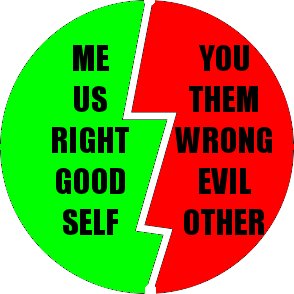There are a few names for it. Getting on the bandwagon. Herd mentality. Groupthink. They all mean the same thing. As social beings, we enjoy the acceptance of our peers. This desire for acceptance is an incredibly strong motivation to conform even when we don’t naturally agree with a position. This can be manipulated in a couple ways.

One way is to simply convince us that the outcome they want is what everyone else wants. It’s simple to do when specific information is withheld from you. Perhaps there is a bill being voted on in congress that affects social security benefits. Perhaps, when publicizing this bill, information about it’s effect on the overall budget are withheld. While 85 year old grandmothers are paraded in front of the camera along with their children, thousands of people protesting against the bill are not given any voice. Without this information, we’re more likely to side with our fellow human beings that we see. To us, it would seem that the bill has nothing but support.
Another way is to limit or control who we see as peers. If a person or a group wants to control a large group of people, they merely need to create an ‘us vs. them’ mentality. ‘Us’ is all the people who think a specific way, and ‘them’ is everyone else. Once this mentality is nurtured, merely labeling anyone who thinks differently as ‘them’ is enough to keep those ideas out of the minds of the rest of ‘us’. There are many labels, but they all serve the same purpose. They exclude the person or group labeled from ‘us’. Since the bandwagon only includes ‘us’ now, the position of whoever has manipulated the dichotomy is able to sway the actions and thinking of the people on it. If we want to keep our place in the group, we need to conform to the ideas of everyone else on the bandwagon. If we don’t we risk being kicked off.

If we stop thinking for ourselves and instead allow our actions and thoughts to be controlled by our peers, we’re actually allowing our minds to taken out of our own control. Without knowing it, we allow ourselves to be used by charlatans, crooks or simply the misinformed. We stop being individuals. If this goes on too long, we forget that we’re even able to think for ourselves, and become completely dependent on others to do our thinking for us, although we’ll swear that we’re in control. That, however, is another subject I’ll cover at a later date.
The bandwagon technique is used constantly in advertising. In many cases it’s not an appeal to your actual peers, but rather who you wish were your peers. Here are some simple examples:
- An athlete tells everyone where he’s going right after wining a big game.
- A supermodel endorses a brand of makeup.
- A hip young person is the embodiment of a specific line of high end computers, while a stodgy middle-aged guy in a badly fitted suit represents the competition.
- A group of attractive people are all drinking the same beer at a high end night club.
You get the idea. The point of the advertising isn’t to get people to think that their product is better. Rather, the effort is put into making people feel that their product is better. They use this technique because it works.